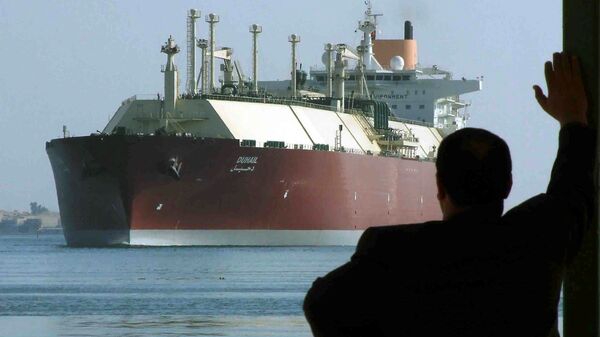Bahram Amirahmadiyan, an Iranian expert on political geography, Central Asia and the Caucasus, told Sputnik that INSTC has long existed "on paper," and when fully implemented could become a real alternative to the Suez Canal. At the same time, he noted that the new route won't be able to replace the Suez completely.
"No land route can replace the Suez since huge amounts of goods are currently transferred through it," he said.
READ MORE: Russia, India, Iran to Discuss New Transport Route That Could Replace Suez Canal
Amirahmadiyan also added that for the INSTC to be successful, the parties to it must first resolve a number of legal, technical, political, and economic issues. He recalled that under the agreement signed by the parties 18 years ago, the plan was to transfer 200 million tons of cargo, but so far only 72 tons had been sent and only as a test shipments.
"Of course, this route is shorter than the one via the Suez Canal. But all three states must introduce laws and reach an agreement on taxes, tariffs, transit and other issues. The railroad between Qazvin and Rasht hasn't been finished yet, and Rasht railway station must be built as soon as possible. The states must ensure the safety of the roads. They must create all necessary preconditions for businessmen to transfer their goods both quickly and safely [via INSTC]," he said.
Furthermore, the expert expressed confidence that upcoming US sanctions against Iran will boost cooperation in the region and among the states.
READ MORE: Caspian Sea Convention Bans Military Presence of Non-Littoral States in Region
Lana Ravandi-Fadai, candidate of historical sciences at the Institute of Oriental Studies of the Russian Academy of Sciences and an expert on Iran, believes that the INSTC project may help Iran to diversify its economy and get it off the oil export's "hook."
"Iran has chosen to develop a transregional route as an alternative to remaining on the ‘oil export hook.' Iran can strengthen its economy by creating a trade route which will become an alternative to the existing ones," she added.
The views and opinions expressed are those of the speaker and do not necessarily reflect those of Sputnik.



